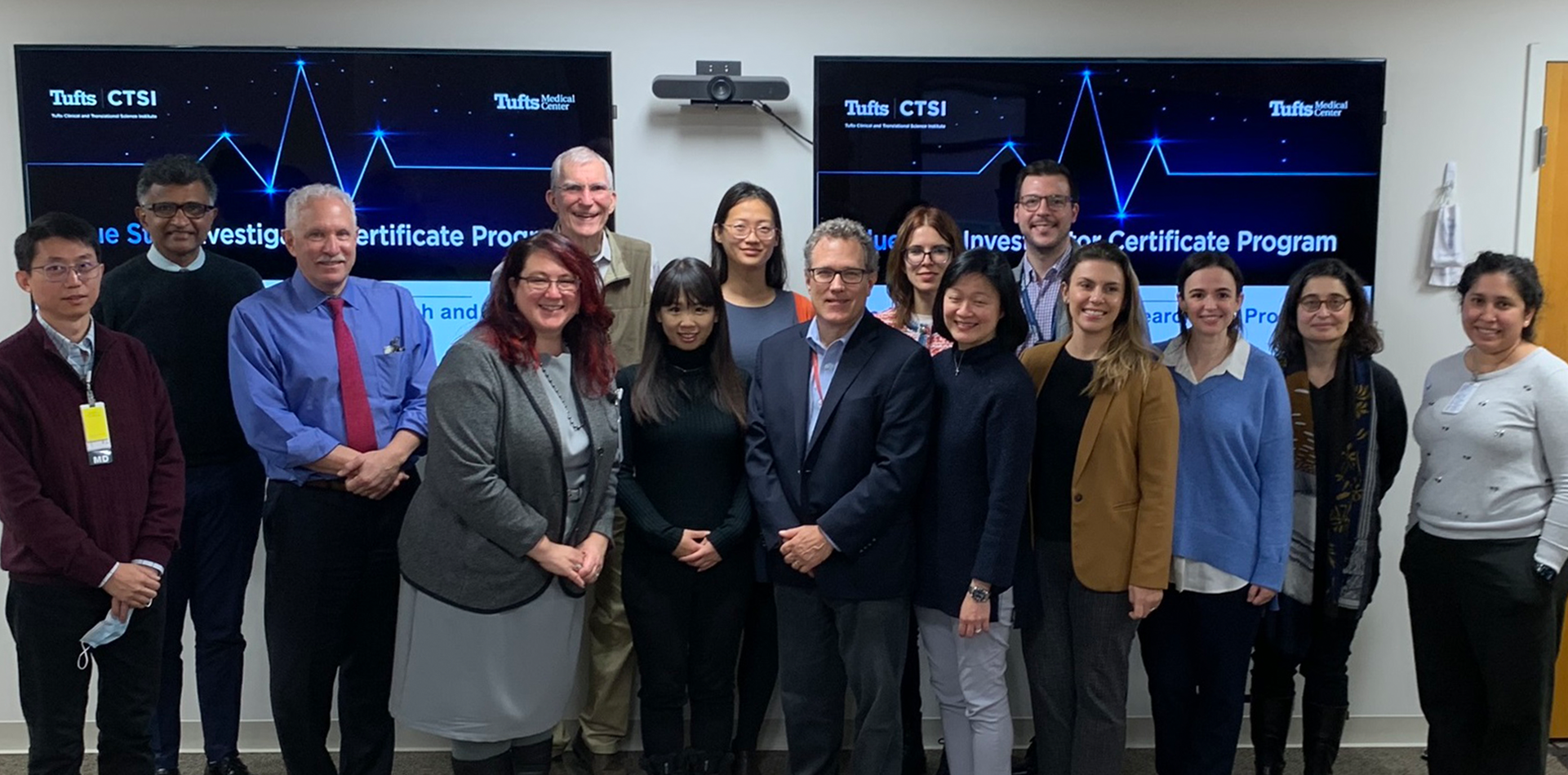Overview
Tufts CTSI offers a K12 Translational Science Career Development Award for highly qualified early career faculty and advanced postdoctoral fellows to conduct multidisciplinary clinical/patient-oriented research for two to three years. This NIH-funded program is designed to foster collaborative research across Tufts-affiliated hospitals/campuses and all Tufts CTSI partners across disciplines.
Recipients (Scholars) are innovative scientists across the translational science spectrum. They receive research training, funding for protected research time, some research supplies, and a structured program to prepare them for translational research careers.
To receive updates, please subscribe to our announcements.
K12 Objectives
The K12 awards aim to:
- Identify and support highly promising Scholars in the early career stage with an interest in translational research
- Provide Scholars with a mentoring team to foster translational and team research skills
- Provide Scholars with research infrastructure support and formal training programs to foster their mentored research projects and their conversion to funded independent and team science investigation.
By meeting these objectives, we will train the next generation of highly successful translational scientists who are well-trained in the concepts of team science and translation of research findings into clinical practice, public health, and public policy.
Who is eligible?
Eligible applicants are US citizens or permanent residents who are early career faculty members and/or advanced postdoctoral fellows who have demonstrated the aptitude and commitment to clinical and translational science, have a high probability of obtaining extramural funding after the training program, and have institutional support for dedicating two years to the award. For further requirements, please see application section.
CTSI K12 Benefits
The program provides salary support and research support. Please see detailed budget instructions here..
Selected CTSI K12 Scholars Will:
- Devote a minimum of 75% of their full-time faculty appointment or professional effort to the mentored career development award. Surgical specialties can have less than 9 person-months (75% of full-time professional effort), but no less than 6 person-months (50%), protected time for this program, if sufficiently justified and programmatically approved.
- Attend a monthly Junior Faculty Research Career Development Forum, a learning community seminar (a faculty-facilitated 15–20-person seminar focused on developing research skills, including manuscript and grant applications).
- Submit two or more manuscripts for publication to peer-reviewed journals, per year. Any manuscripts resulting from the K12 Career Development Award Program must include the following grant citation: The project described was supported by the National Center for Advancing Translational Sciences, National Institutes of Health, Grant Number K12TR004384. The content is solely the responsibility of the authors and does not necessarily represent the official views of the NIH. For more information, please visit our How to Cite Tufts CTSI
- Submit, by the end of the training program, an application for extramural research funding (NIH, NSF, AHRQ, PCORI, or foundation/industry awards) for additional career development or independent research grants.
- Complete an annual report documenting research progress and present it to the K12 Advisory Committee. The second year of funding is contingent upon a successful Committee review.
- Complete, during their two years of funding, a course on the responsible conduct of research.
- Attend the Association for Clinical and Translational ScienceAnnual Meeting once over the 2-year award period and present their scientific work.
- Obtain IRB and IACUC approval before funding can be awarded. Clinical research must also go through NCATS human subjects review prior to beginning the research.
What is the role of mentors of K12 Scholars?
- Provide research support and guidance towards an independent research career, with a regularly planned series of meeting and activities, in addition to frequent discussion and guidance as needed.
- Meet annually with the Scholar and leadership of the K12 Program to review overall career and training goals and activities.
- Participate in CTSI-provided mentor training every two years.



